Jo O'Neill
September 24, 2025An Interview with Kevin Blake...
A candid conversation with broadcaster, bloodstock agent and man of many racing hats, Kevin Blake.
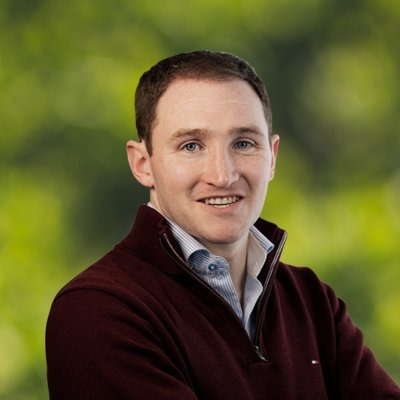
Kevin Blake, a staunch advocate of racing, has done a multitude of roles within the industry. Owner, breeder, race planner, television presenter, writer and, up until recently, a Betfair ambassador, for which he produced weekly podcasts and blogs for over twelve years.
He even lived in the UK when working for trainer Jeremy Gaskell. ‘I went with his runners to many of the Flat tracks but I haven’t done as many jump tracks,’ he adds. Kevin articulately and knowledgeably speaks on the finer points of racing, and no one is more determined to ensure the sport’s future.
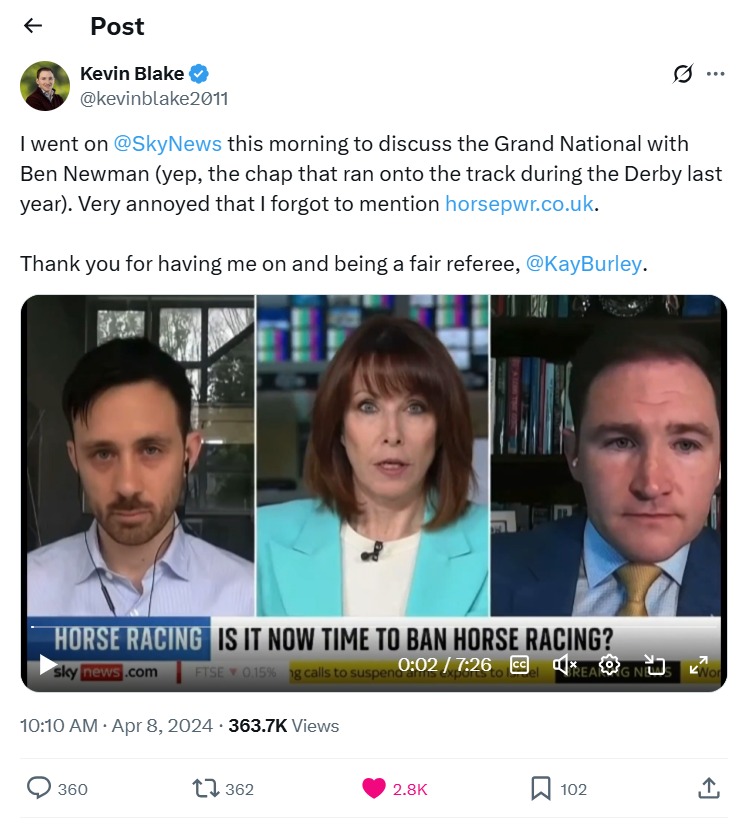
One of Kevin’s primary focuses is Golden Farm, situated in the Golden Vale in County Tipperary. Once the family dairy farm but ‘The cows and cattle are long gone by nearly twenty years.’ He explains how he’s gradually turned it into a stud, keeping standards high and increasing capacity every year. ‘I’m proud of what it’s grown in to and I have ambitions to grow it even more.’
Kevin, 37, is married to Deidre, who used to be a payroll manager. ‘She quit two-and-a-half years ago and now does all the bookkeeping for the farm and my own businesses,’ says Kevin. ‘She is a huge help and, being so skilled at what she does, takes a lot of administration off my desk so I can focus on earning.’
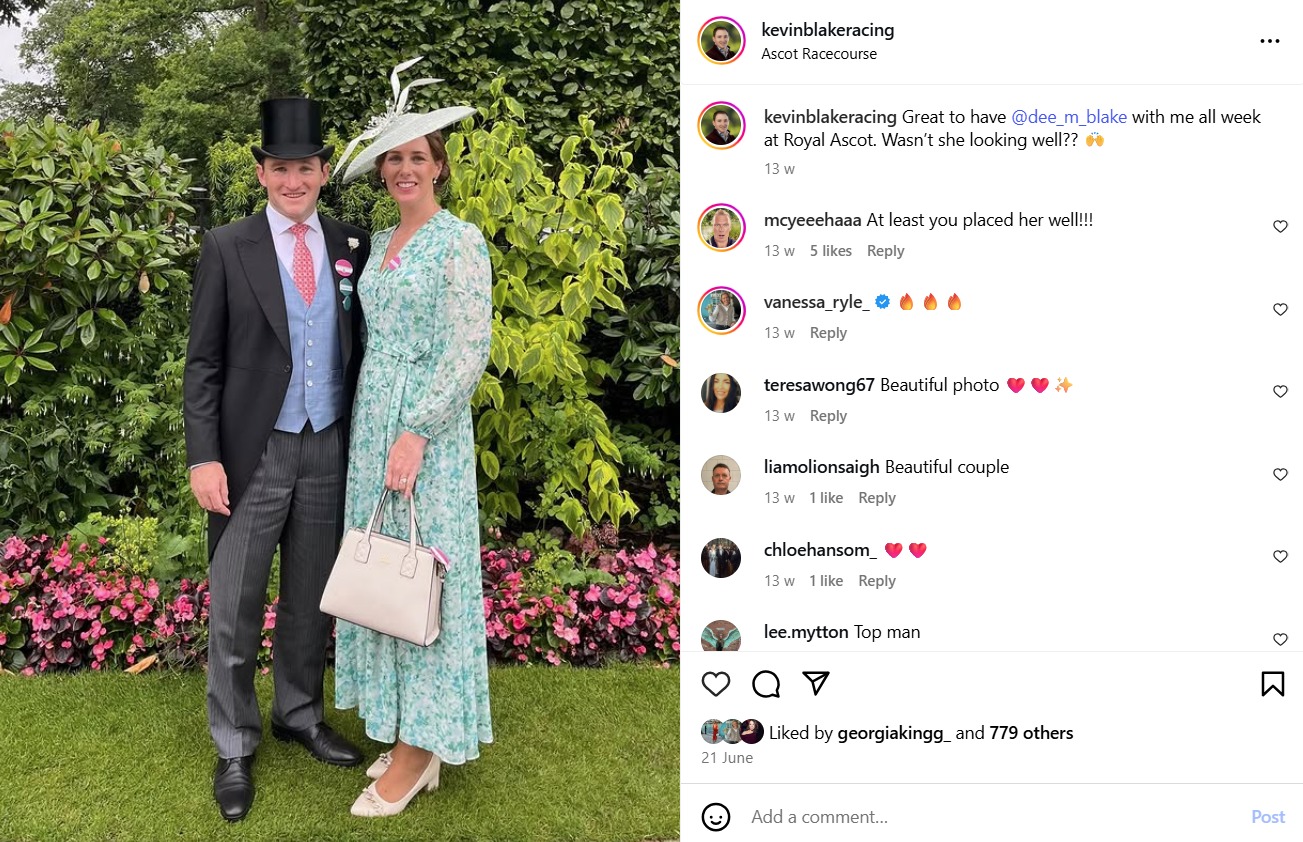
What have been your roles in the racing industry? “People are never shy to tell me I wear a lot of hats and it's a fair comment."
"I’ve had a heavy involvement in racing media both written with Timeform and the Racing Post and broadcast work with At The Races, ITV Racing and Sky Sports Racing.
I’m a breeder. I bred Ventura Tormenta, who won the Prix Robert Papin in France five years ago, which was definitely a highlight. I am involved as an owner and in recent years have had a couple of Group 1 winners, including Al Riffa. In the last year, Lady Of The Lamp ran in my colours and won stakes races. I work with Joseph O’Brien in a consultancy role, race planning, I buy and sell a lot of horses with him and I work with his clients to buy horses."
Describe the role of race planner: “After having a lot of success very quickly, Joseph felt he needed some assistance with, amongst other things, race planning. Prior to that, we hadn’t had many dealings with each other but we got talking, hitting it off well. The main role is accumulating high quality information, getting all options in front of Joseph to help him make the best quality decisions. My job is to make sure Joseph is as informed as possible so he’s a couple of steps ahead at all times. Joseph is very willing to campaign his internationally so I look at the international program to see what opportunities present worldwide.”
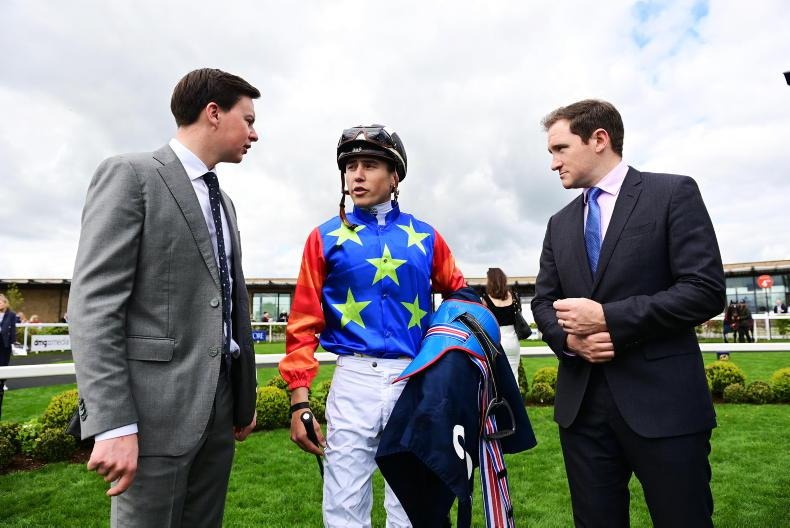
For racing, has the threat from animal rights activism disappeared? “I wouldn’t say that it’s disappeared. It has quietened down since that last protest at the Derby two years ago but we’d be ill advised to say it’s gone away. There’s plenty of anti-racing sentiment from some quarters and society is moving away from pursuits that involve animals. Animal-based sports are going to be a focus point, like greyhound racing finds itself under a lot of pressure and now there’s only a handful of countries that permit greyhound racing. Horseracing should look closely at that and best equip ourselves against that kind of pressure."
Where do you see racing in ten years’ time? “When I imagine what racing’s prospects are long term, I think of a sequence of dominoes. The first domino is the Aintree Grand National, which is our highest profile race but also our highest risk. Inevitably, it’s a honey pot for racing’s opponents. The amount of changes to that race in the last decade or so has had a positive impact but it’ll remain vulnerable.
Moving down the line of dominoes and you look at racing over fences, racing over hurdles, two-year-old racing and onto Flat racing…in my mind, those dominoes at the latter end of the line are very secure – that Flat racing is very easy to defend and is very secure. Opponents will take fatality rates in jump racing over those on the Flat and seek justification for jumps, which is a more difficult discussion to have. Such is the nature of modern society for any kind of risk is considered to be a negative, when you put the two codes up against each other and see the difference in fatality rates, that’ll bring challenges.
At the same time, we have to step back and look at how strong our sport and industry are. It’s a hugely popular sport in the UK and Ireland, is the second most highly attended live sport and people are happy to invest heavily in view to having great experiences within the sport.
Those of us who love it are over-inclined to see threats and potential negatives. When we step out of that bubble of love and passion for racing, we have to see what good shape we’re in – the health of the industry, size of the sport, its popularity and we have many happy decades in front of us.”
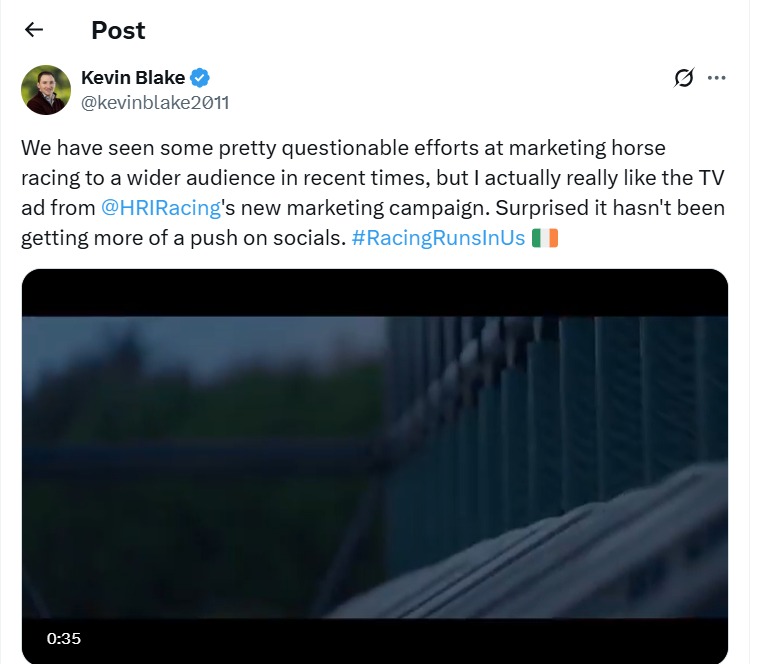
How did you start in the breeding industry? “Coming from a dairy farming background, I was fortunate enough to have a few acres. When I was about eleven, my dad impulsively bought a brood mare off a chap in the pub. Without knowing what he was doing, he brought the mare home to a makeshift stable.
From that, I started to have an interest in Thoroughbreds and racing. I backed Back In Front to win the 2003 Supreme Novices’ Hurdle and won a few quid. I thought it be a good idea to buy my own brood mare – a very very cheap one!
For a long time, it was the one mare, two mares and then three mares. It was a great way to get an education in what did or didn’t work – lessons are learnt when it’s your own pocket involved. In the last eight years, numbers have grown organically and, since covid, there’s been an acceleration in the growth of the business. I always say if you’re breeding Thoroughbreds in Ireland, you have to stay in the Premier League as your competitors are the best in the world. If you’re not prepared to invest properly and make investments in people with the highest standards and facilities, you’ve got no business of breeding at a commercial level.”
Where would you like to see your breeding industry in the next ten years? “It’s challenging because land is expensive here. About four years ago, I was very lucky to buy a small farm beside me, which has been a big help but our rate of growth is impeded by the availability of land. As it grows, we’re making sure the standards don’t dip and if we can’t expand in acreage, then we’re looking to continually improve the quality of stock through high quality mares and stallions.
Nothing can really change fast here because, essentially, I have to earn it before I can spend it but we’re doing it the right way. We’re never going to be worrying Coolmore or Godolphin in terms of scale, but we have a profitable business producing Thoroughbreds that do well at the sales ring and on the racecourse.”
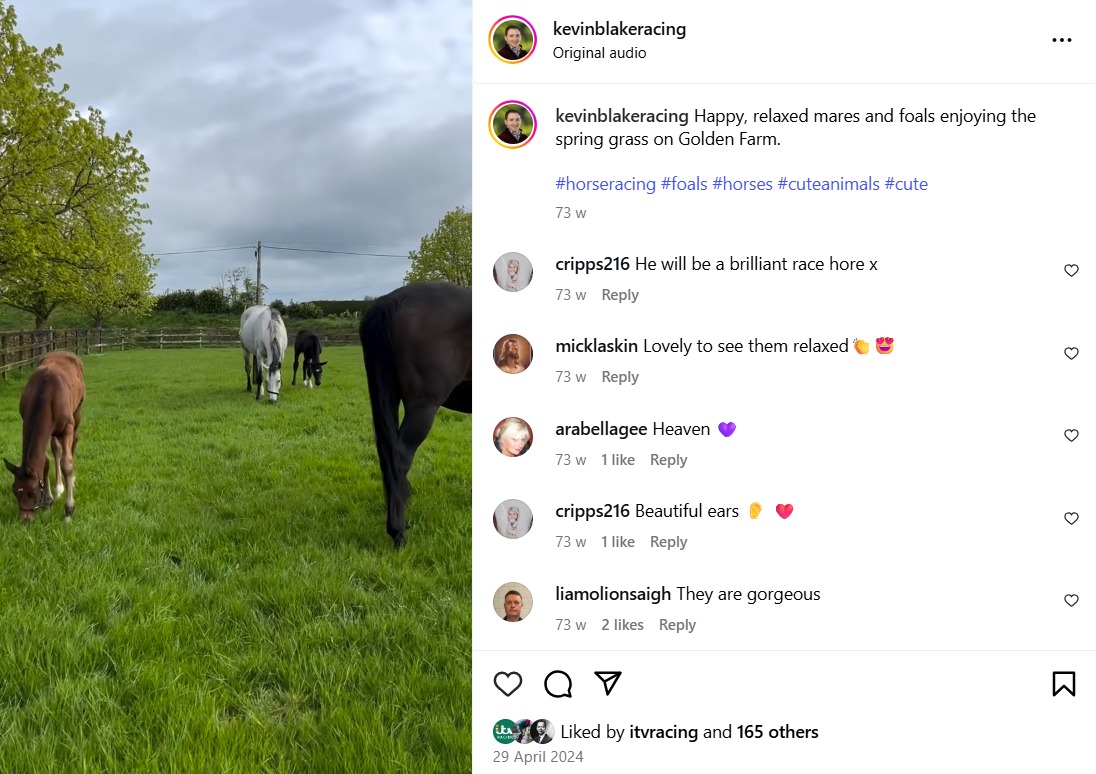
Describe your involvement in racehorse ownership: “For most people, racehorse ownership is a hobby and a pursuit of pleasure. Any investment has gone and is not considered again, and some enjoyment comes out of it. I view it differently in that I treat ownership as a trading mechanism to complement what’s happening at home.
Breeding commercially isn’t without its challenges. In recent years, there’s so much to be said by going to the races, saddling a horse and looking to trade them once they’re racing. The sales ring can be a very frustrating place: it’s governed by fashion, veterinary examinations can be tough and a horse that’s ticked off a lot of boxes before it goes won’t always maximise its value. Whereas on a racecourse, if you’re lucky enough to own a horse that wins a two-year-old maiden in Ireland, by a sire that may not be fashionable or with confirmation that may not be 100% perfect then it all that goes away once it can show it can gallop.
The market for proven horses is unbelievably strong domestically and internationally, so I found myself putting more and more spend into horses that go onto race or are racing in view of trading them. I’ve had some super results in recent years – my investments in racehorses have out punched my investments in breeding stock. I find it a good trading mechanism to complement the core business. With breeding, you can make a series of fantastic decisions along the path – pick a mare that proves to be a wonderful buy, a stallion that proves to become fashionable by the time the foal hits the ground but, ultimately, you lose control during that pregnancy. The mare can unfortunately give birth to a crooked filly that won’t go on to be saleable. Despite making those series of good decisions, you won’t get benefit from them. Buying at a later stage, you can use your judgement in a targeted decision rather than on the randomness of breeding.”
Which race would you most like to win? “The Epsom Derby. I was very lucky to have an ownership interest in Tennessee Stud. He finished third this year and it was the most thrilling experience in terms of history and magnitude of the race. I’m a very very emotionally level person but I found the day mind blowing and hit me in ways I didn’t expect. The chances of me having another involvement in the Derby are low so I was appreciating every second of it. My appetite was definitely whetted. I hope we have many more decades left in the game and, if I could find myself back there again with a shot, then it be the dream.”
Favourite racecourse in Ireland?: "I do love the Curragh and I rarely miss a meeting. Every time you turn up, the maidens would be lighting up anywhere in the world in the terms of their pedigree and that’s before you talk about the stakes races and other big races."
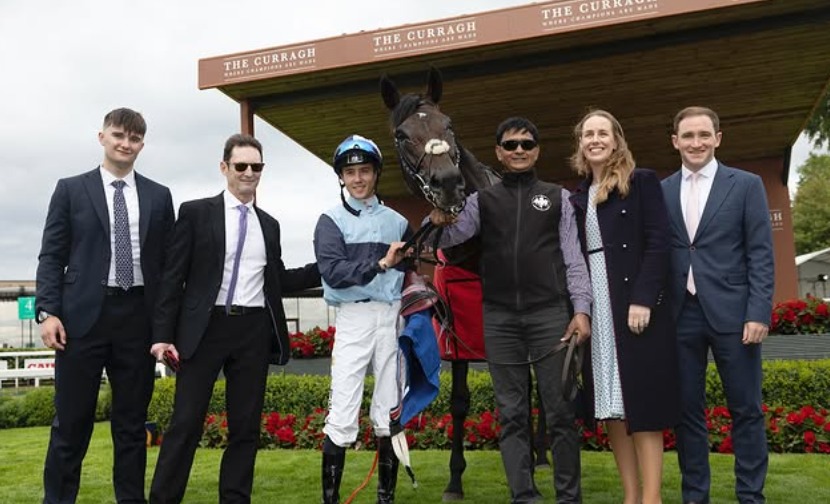
Favourite racecourse in the UK?: "I’ve been lucky enough to have gone to many of the tracks in the UK and Ascot is the best. It’s such a special place and the Royal meeting is on another level to anything around the world in that it’s an incredible venue with incredible facilities, and they put on incredible events that are unbelievably well run. I must mention York as well for it’s world class in every sense but if you’re pinning me down to one, it has to be Ascot."
Favourite racecourse internationally?: "Sha Tin in Hong Kong is an incredible place – the facilities and track are wonderful. There’s such a passionate fan base that lifts the whole place.
Last year, I was at Saratoga for the first time and I really enjoyed its vibrancy. Del Mar is another I really enjoy. I’m really keen to go racing in Japan – every time I see big races in Japan, I get absolute FOMO. Hopefully it won’t be long before I go."
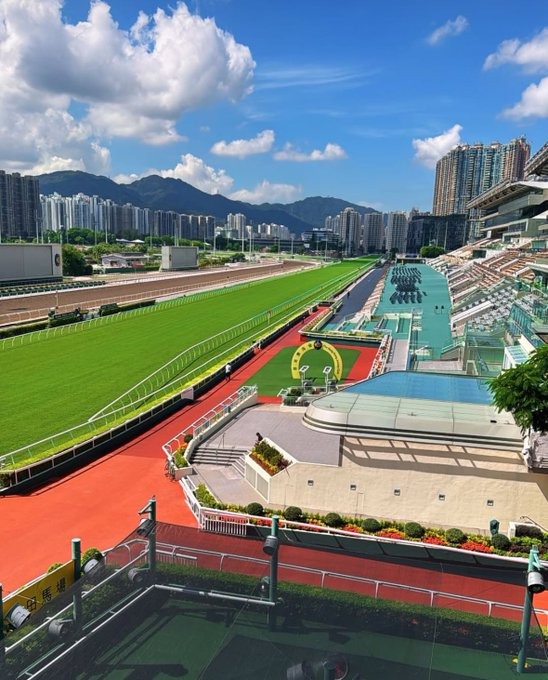
Favourite jockey?: "I have to say Ryan Moore. It’s a very obvious answer but I’ve had plenty of dealing with him over the past decade and I just have huge admiration for him. All great sportspeople are metronomic, disciplined and consistent – the challenge they face when getting to the top of Everest, is ‘what now?’ They potentially lose motivation, consistency and discipline so their performance suffers. It’s the people who get to the top of Everest and say, ‘I’m here now, what can I do to stay here?’ maintain consistency and standards to the very highest level, despite younger people coming up through. Ryan is a fantastic example of that. He’s such a professional and so consistent – it’s impossible not to admire him."
Favourite racehorse?: "In my time with Joseph, there’s been a couple that have been extra special but State Of Rest was such an incredible horse to everyone involved. He took them on an incredible journey around the world from the Saratoga Derby to the Cox Plate at Moonee Valley. The horse went through so much to get there and come back. To win the Prix Ganay in 2022 and the Prince of Wales’s Stakes at Royal Ascot, which was one of my best days in racing due to the front running ride.
I have a bit of a chip on my shoulder on behalf of the horse because he never got the full credit he deserved. Sometimes when winning all those Grade 1s internationally, he came back domestically and was a bit unlucky, like in the Tattersalls Gold Cup. Then, he came back next time at Royal Ascot on the biggest stage, he put them right. He was such a tough horse and I just know that the people who were closest to him talked about him a bit differently to the rest. He was a special special horse."
Favourite meal?: I love my food and would try anything. I don’t know if I can pick one specific thing, but I do love a fillet steak rare."
Favourite drink?: "When I lived in the UK, I got quite fond of English ale so whenever I go there now, I always sample the local ale."
Ideal dinner guests?: "Anyone involved in racing would love to sit down with Vincent O’Brien. He was an incredible man and I think he would have been fantastic company. Sir Henry Cecil would have been entertaining at the dinner table and Sir Mark Prescott would complement them really well and drive the conversation."
Favourite film?: "The subject of Moneyball is close to my heart and The Big Short is another I enjoy."
Favourite TV programme?: "Breaking Bad, which I’ve watched twice."
Favourite book?: "I shamefully struggle to find the time to sit down with a book and I have a pile of books that I’ve bought over the years but haven’t yet read. I can manage audio books and listen to them when I’m running or driving. The most recent read that I’ve enjoyed is How To Win The Premier League by Ian Graham. I’m not a football fan as such but I found a lot of parallels to racing at the minute."
Favourite music?: "I listen to all sorts of genres: Guns And Roses to The Pogues! Jack Johnson puts me to sleep at night... and I’m quite fond of David Dempsey. If you saw my super eclectic Spotify, you’d think there were ten different people using it as it has a little bit of everything."
Other hobbies and interests?: "I really enjoy boxing from a sporting point of view. I love to run. A good pal of mine, who can’t understand why I love running, keeps asking ‘What are you running away from?!’ I love to feel healthy. To have once played a lot of sports when I was younger, I think it’s important to stay active and running helps me to relax.
I’d be guilty of being attached to my phone so when I get out and run for an hour, it gives me space to think properly without Whatsapp pinging forty times. Many decisions are made during a run."
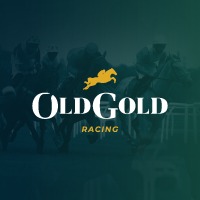
Written by:
Jo O'Neill
Share article:
